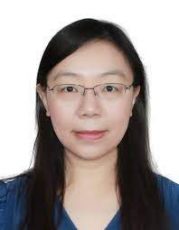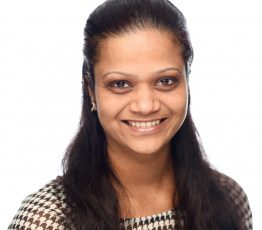

Session Agenda
EVERYTHING from drafting manuscripts to journal selection and successful publication that you don’t have an answer for!
Behind the Scenes with Editors-in-Chief, conducted as a part of Enago’s “Ask the Editors-in-Chief” webinar series, aims to answer critical questions including who takes the final call to reject a manuscript, what exactly are editors and reviewers looking for, and what researchers can and cannot ask the editors during the course of submission and review.
This interactive session featured Duncan Nicholas, President of the European Association of Science Editors and former Managing Editor at Taylor and Francis; James Wicker, Editor of Research in Astronomy and Astrophysics, published by the National Astronomical Observatories, Chinese Academy of Sciences; and Wei Kong, Chair & Professor of Department of Physiology and Pathophysiology, Peking University Health Science Center. In this session, the speakers also answer the questions from the audience and provide guidance on how researchers can prepare for unforeseen challenges and simplify their journey to successful publication.
The discussions focus on the following topics:
- Who decides whether a manuscript is desk-rejected and on what basis?
- What is the acceptable standard for English language quality?
- Can authors approach the editors for help during the journal review process?
- What should authors do if plagiarized content is reported by the journal editors?
- Should authors follow the journal editor’s suggestion to transfer a rejected article to a sister journal?
- When do academic journals retract articles and how authors should handle it?
We also received some very interesting questions from the participants. Click here to find the responses shared by our experts.
About the Speaker
 Duncan Nicholas, President of the European Association of Science Editors, Development Editor for Elsevier’s Reproductive BioMedicine Online Journal
Duncan Nicholas, President of the European Association of Science Editors, Development Editor for Elsevier’s Reproductive BioMedicine Online Journal
Duncan has 16+ years of extensive experience in the scholarly publishing industry, providing a wide range of services including independent editorial consultancy, training for publishers and researchers, journal editorial management, and publishing. He is currently the President of the European Association of Science Editors (EASE), and is also a trainer at the Association of Learned and Professional Society Publishers (ALPSP). He is also associated with Reproductive BioMedicine Online, an Elsevier journal, as a Development Editor. His past affiliation includes working as Journal Development Editor at Taylor and Francis Group.
 James Wicker, Editor and Researcher at the National Astronomical Observatories, Chinese Academy of Sciences
James Wicker, Editor and Researcher at the National Astronomical Observatories, Chinese Academy of Sciences
James has a background in Physics and Statistics, and has been contributing to astronomical research for over 20+ years. He is currently associated with the National Astronomical Observatories, Chinese Academy of Sciences as a researcher as well as an editor for the journal Research in Astronomy and Astrophysics. James was awarded the Outstanding Editor Award and RAA Certificate of Recognition for Special Contribution for his excellent editing skills.
 Wei Kong, Chair & Professor, Department of Physiology and Pathophysiology, Peking University Health Science Center
Wei Kong, Chair & Professor, Department of Physiology and Pathophysiology, Peking University Health Science Center
Wei is a distinguished researcher and has published more than 110 peer-reviewed papers. She is currently the Chair and Professor of the Department of Physiology and Pathophysiology at Peking University Health Science Centre. She is also the Principal Scientist of the National Natural Science Fund for Innovative Research Groups Science Foundation. Wei has served on the editorial board of several prestigious journals including the American Journal of Physiology-Cell Physiology, Circulation Research (AHA/ASA Journals), and Matrix Biology (Elsevier). She has won several awards including China National Funds for Distinguished Young Scientists (2012), the Young Scientist Award by the Bill & Melinda Gates Foundation (2016), and Scholars of the Yangtze River (2017).
 Dr. Anupama Kapadia, Science Communication Expert and Editor-in-Chief at Enago Academy
Dr. Anupama Kapadia, Science Communication Expert and Editor-in-Chief at Enago Academy
Anupama is a licensed specialist in Physical Medicine and Rehabilitation (Orthopedics) by qualification and scholarly publishing professional by vocation. She has been working in and around the editorial paradigm for 15+ years now and is actively mentoring and training academic professionals in the writing and editing fields. To date, she has led several projects related to fulfilling newer requirements of clients and publishers by enhancing the editorial, peer review systems, and author services of Enago. She is a member of renowned scholarly associations such as COPE, ISMTE, and EASE, which focus on increasing professional networking within the scholarly publishing community and help establish best practices amongst publishers and journals. She is also a volunteer in the different committees of ISMTE and EASE.

 Duncan Nicholas, President of the European Association of Science Editors, Development Editor for Elsevier’s Reproductive BioMedicine Online Journal
Duncan Nicholas, President of the European Association of Science Editors, Development Editor for Elsevier’s Reproductive BioMedicine Online Journal James Wicker, Editor and Researcher at the National Astronomical Observatories, Chinese Academy of Sciences
James Wicker, Editor and Researcher at the National Astronomical Observatories, Chinese Academy of Sciences Wei Kong, Chair & Professor, Department of Physiology and Pathophysiology, Peking University Health Science Center
Wei Kong, Chair & Professor, Department of Physiology and Pathophysiology, Peking University Health Science Center Dr. Anupama Kapadia, Science Communication Expert and Editor-in-Chief at Enago Academy
Dr. Anupama Kapadia, Science Communication Expert and Editor-in-Chief at Enago Academy
